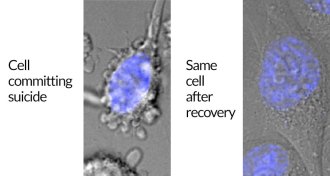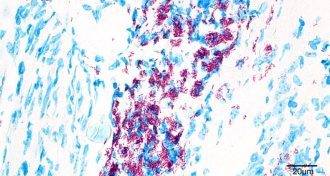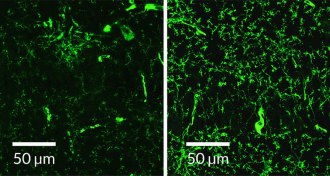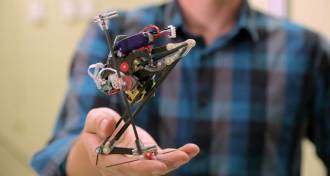News
-
 Ecosystems
EcosystemsOyster deaths linked to ‘atmospheric rivers’
Atmospheric rivers bring strong storms that could have been behind a 2011 California oyster die-off.
-
 Health & Medicine
Health & MedicineNumber of teens who report doing drugs falls in 2016
Drug use is down among teens, survey finds.
-
 Earth
EarthFossil microbes show how some life bounced back after dino-killing impact
Pioneering microbes colonized the waters above the Chicxulub crater within hundreds of years following the impact, new research shows.
-
 Astronomy
AstronomyMagnetic stars could have created LIGO’s massive black holes
Strong magnetic fields could provide a way for massive stars to create heavy black holes when they die.
-
 Life
LifeCells avoiding suicide may play role in spread of cancer
A newly discovered process can pull cells back from the brink of death.
-
 Quantum Physics
Quantum PhysicsVacuum’s quantum effect on light detected
Light can be polarized through interactions with empty space.
-
 Genetics
GeneticsEpigenetic marks may help assess toxic exposure risk — someday
Exposure to things in the environment may change chemical tags on DNA and proteins, but it’s still unclear how to use that data to assess health risks.
-
 Life
LifeEarly RNA may have used isolation strategy to defeat useless mutants
Temporary barriers help RNA escape shorter, faster-replicating parasites
-
 Ecosystems
EcosystemsLosing tropical forest might raise risks of human skin ulcers, deformed bones
Bacteria that cause Buruli ulcer in people flourish with tropical deforestation.
By Susan Milius -
 Neuroscience
NeuroscienceBrain waves show promise against Alzheimer’s protein in mice
Flickers of light induce brain waves that wash amyloid-beta out of the brain, mouse study suggests.
-
 Science & Society
Science & SocietyVirtual reality raises real risk of motion sickness
New research confirms anecdotal reports that virtual reality headsets can cause motion sickness, and may affect women more than men.
By Betsy Mason -
 Tech
TechZippy new jumping bot catches air again and again
Leaping robot can bounce from floor to wall, parkour-style, and, like a bush baby, uses a “super-crouch” to get extra oomph out of jumps.
By Meghan Rosen